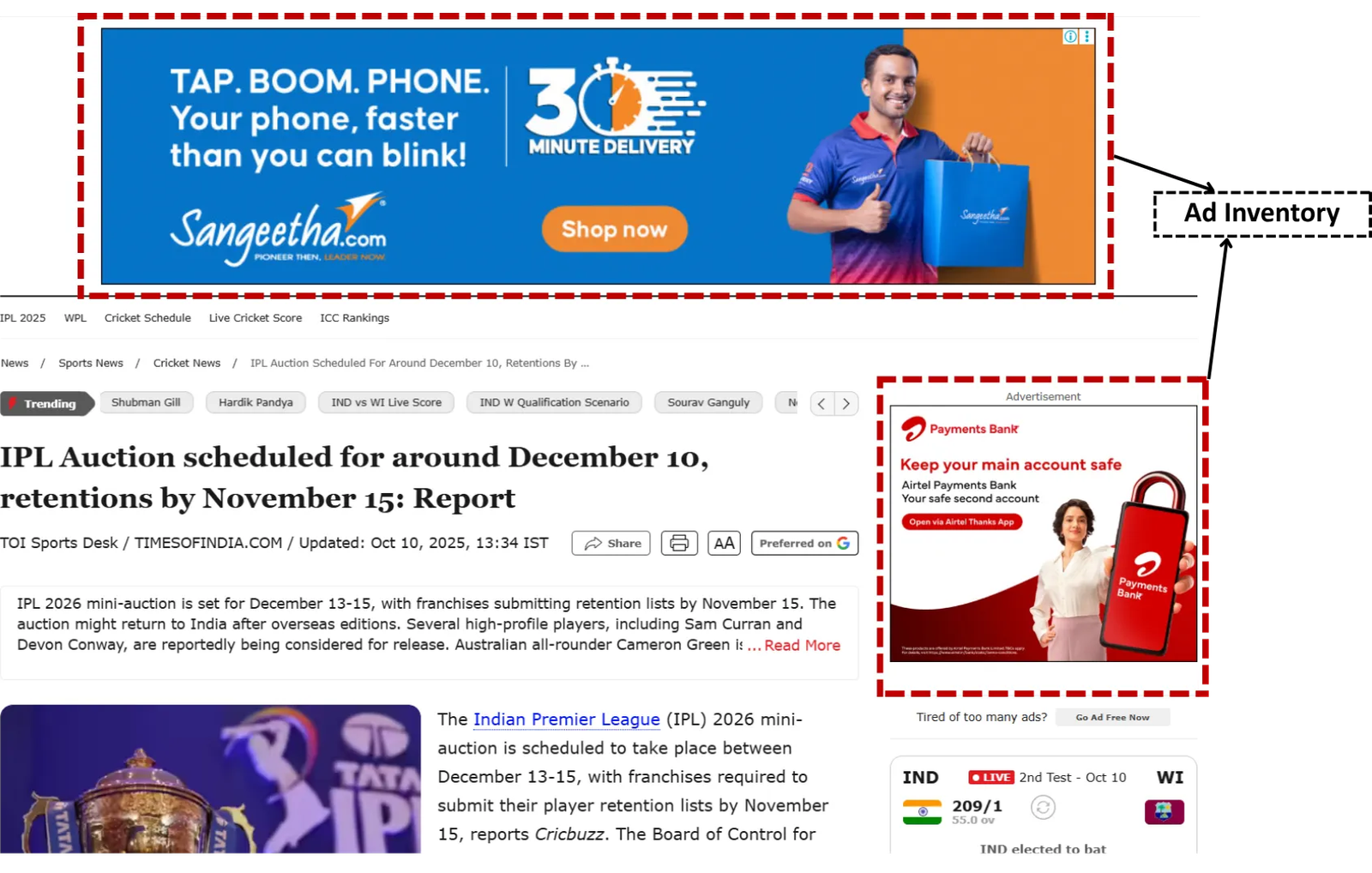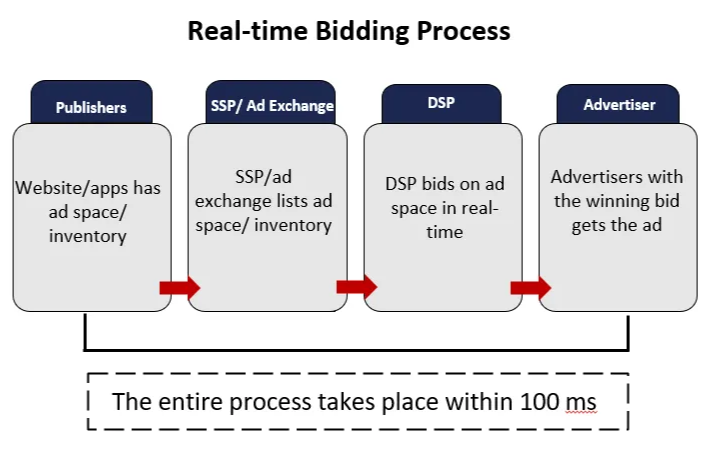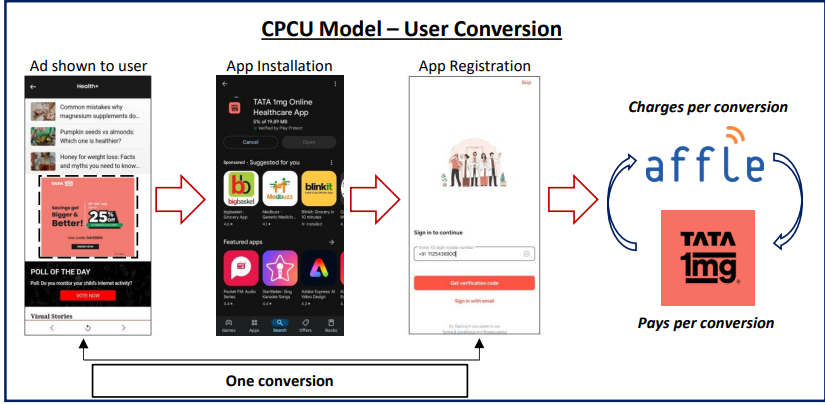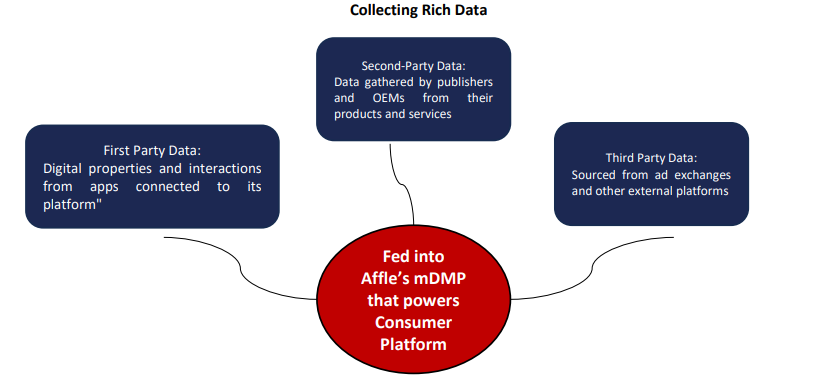
Welcome to this edition of learning of the week. Today we are going to talk about a phenomenon that happens with you and the people around you every day.
You may have been in a situation where you talked to a friend on a call about buying a laptop. The next time you open Instagram (or any other social media), boom! You are greeted by advertisements from Lenovo, Asus, HP, or from Croma, Flipkart, etc.
This leaves you baffled, wondering if they are listening to your conversation. Sometimes, you may have only thought of buying a product and later that day you see an advertisement for it.
“Creepy!”, right? But you’ll be surprised to know that it’s not actually your phone spying on you, not directly at least. Your behavior already reflects your intention, leaving behind tiny breadcrumbs well before or after the call you made, which become signals for advertisers to pick up on and bombard you with ads.
“Wait, what!?” Don’t worry, in today’s newsletter we’ll break down how advertisers pinpoint what to sell to you and how they figure out when it would be the most effective time for it. We’ll also talk about an Indian company that silently empowers advertisers.
You’ll be surprised to know at what complexity and speed the data the process works in the background and how much data it uses.
The Basic Cycle of an Advertisement
Usually when we think of an advertisement, we only think of two parties, the advertisers such as brands and publishers who show ads, such as Instagram or websites. But you’ll be surprised to know that there are many key players behind the advertisements you see and how interestingly they orchestrate the process. Let’s uncover them one by one.
Publishers –
Publishers are simply websites and apps. These sites are free to access most of the time as they have the most precious asset with them, your attention. When you open an app or a website, you are shown advertisement banners in, around, or above the content or features. These are called ad spaces, which are collectively known as ad inventory.

(Source : Times of India, Bastion Research)
On a side note, we always wonder how these useful apps such as Instagram and Facebook are always free to use, even many news articles are free to access and which is why we always remember the quote “When you are not paying for a product, you are the product.” Publishers monetize their sites by selling these ad inventories to advertisers which they utilize to sell their products or services to us. Example: Times of India website, Moneycontrol App, Instagram stories, etc.
Advertisers –These are individuals or companies that create and pay for ads to promote their products or services and increase their visibility across various platforms. Example: Flipkart, Neu, Kalyan Jewellers, Coca Cola, Lenovo etc.
Pretty straight forward and simple, right?
Understanding more background players
Supply Side Platform (SSP) –
Now this is where things get little bit more interesting.
Think of SSPs as a platform that acts as a sales agents for these publishers and helps them sell their ad inventory at the right price ,to the right person at the right time. The supply side platform has one job, that is to aggregate ad space and find the best buyer. Example: Affle, Google DoubleClick, Applovin.
Publishers use Supply Side Platforms (SSPs) to sell inventory, ensuring ads are displayed when a user engages with their services
Demand Side Platform (DSP) –
Now that we have understood that there is a sales agent (SSP) on the supplier side who helps publishers sell their ad inventory, there is also a very strong tech-driven buyer who helps advertisers buy the right ad inventory at the right time which helps advertisers maximize the yield on their campaign, whether it is audience reach, clicks or conversions. DSPs enable this through the massive pool of data they have. Example: Google DoubleClick, Trade Desk, AppNexus, Affle.
Ad Exchanges –
This is where the action happens. Ad exchanges are digital marketplaces where advertisers (with help of DSPs) and publishers (with the help of SSPs) buy and sell ad space through real-time auctions just like stock market but for ads. Example: Google Ad Exchange, OpenX, PubMatic.
Data Management Platforms (DMP) –
These are the real culprits (or heroes) who predict your behavior. A DMP gathers and analyzes data from various sources to create anonymous customer profiles for targeted advertising. DMPs link both SSPs and DSPs. They help SSPs by finding them the right price for their ad inventory and at the same time help DSPs find the right target audience for their advertisement by finding right ad inventory, creating a win-win situation for both parties. Example: Affle, Oracle, BlueKai, and Aggregate.
Here is how the advertisement cycle looks in reality

(Source: Affle, Bastion CORE)
Real-Time Bidding –
When a user visits a site, the SSP sends out an ad request, and advertisers use DSPs to place bids based on the user’s data and the ad space available. The highest bidder wins, and their ad is displayed to the user, all within milliseconds. This system allows for precise targeting and efficient ad placement, optimizing revenue for publishers and ensuring relevant ads for users.
Imagine a typical evening. You search “best laptops under Rs 60,000”, open a few marketplace links, and read reviews. From your side it is casual browsing. From the ad ecosystem’s side, your device just sent a signal saying “Potential Laptop Buyer Spotted!!”
On the web, these signals travel via first-party cookies and pixels. In apps, they link to your login and a resettable advertising ID (IDFA on iPhone or GAID on Android). Think of that ID as a temporary license plate, not your name or number.
Publishers work with an SSP to sell an impression when your page loads. The SSP tells an exchange that an ad slot is available and shares basic context. DSPs check whether your device sits in a segment like “Laptop Intenders.” A DMP groups pseudonymous signals from partners to build that segment. If your device matches, the DSP bids. If it wins, you see the ad.
Afterward, the page records whether you viewed, clicked, or purchased, and your segment updates so you are either suppressed because you converted or refined based on the features you seem to prefer.

(Source: Affle, Bastion CORE)
This is how the system estimates taste and budget. It does not look at your bank account. It notices the prices you click. If most of your views are around Rs 60,000, you will see offers in the Rs 50,000 to Rs 70,000 band. If you linger on GPU specs, you will see gaming creatives. If you read about battery life, the message shifts toward portability. Timing follows the same logic. If you are most active at night, more bids arrive in that window.
Trust us, it is not your microphone. At this large scale, this is not only impractical for advertisers but also restricted by iOS and Android rules. The eerie feeling you get usually comes from predictions, shared interests with friends, and lookalike audiences.
You’ve probably realised by now that privacy isn’t lost in one big leak. It fades away click by click. Every harmless scroll, search, or late-night wishlist helps advertisers predict your next move. People often say privacy is a myth in the digital age, and maybe they are right. On a lighter note, if you can’t keep your data to yourself, you might as well make money from the people who are using it, which leads us to Affle (India) Ltd., the quiet operator behind many of those eerily accurate ads.
Affle (India) Ltd
Affle (India) Ltd (Affle) is a global programmatic mobile-based ad-tech player that enables advertisers to acquire, engage, and transact through relevant mobile advertising. It has carved a niche for itself in the advertising industry by adopting a differentiated business model known as the Cost per Converted User (CPCU) model. This approach sets it apart from other industry players who largely operate on Cost per Click (CPC) and Cost per Mille (CPM) (impressions).
The image below shows what the Company means by a “Conversion.” It is a far more involved process than just getting a click or view, as it directly drives revenue for advertisers. This is why the CPCU model earns a much higher payout compared to CPC or CPM.

(Source: Affle, Bastion CORE)
What’s Affle’s role: It uses non-sensitive data about you such as your browsing behavior, purchase patterns, timing, etc., and not sensitive data such as passwords or credit card numbers and, with its machine learning AI-based models, targets ads based on those behaviors. Affle generates revenue not just from clicks or impressions, but by making money on the actual conversion of a user through ads in the form of downloads, sign-ups, successful orders, etc. As of FY25, Affle has more than 360 Cr devices connected to its consumer platform where it processes data, including yours.
Affle provides value to advertisers as a DMP, providing them with the right user who is most likely to get converted. Affle collects its data from the following forms:
Third Party Data: Bought from Ad Exchanges such as Google Ad Exchange (AdX), PubMatic, etc.
First-Party Data: These are collected directly from a client’s own platform. For example, if Affle partners with Swiggy to drive more app installs, it can access user behavior data from Swiggy’s app.
Second Party Data: From OEMs such as Samsung, Xiaomi, etc. These phone makers often allow Affle’s pre-installed or post-install recommendation engines to collect anonymized usage signals.

(Source: Affle, Bastion CORE)
Affle’s model shows real skin in the game, as it earns only when its clients generate revenue through downloads or sign-ups, unlike CPC or CPM models that get paid for mere clicks or views.

(Source: Affle, Bastion CORE)
Conclusion
We live in an era where your attention has become a currency, and you are becoming a product. Your every tap, scroll, and hesitation is silently monitored, stored, and auctioned off within milliseconds. Although one positive aspect of this is that the algorithm shows you what you are looking for, it also comes at the cost of your privacy being traded and sold as a product.
We have also figured out today that what we feel like intuition or some sort of mind-reading technology you are unaware of is actually a complex computation based on your behavior. And among all these shenanigans, there are companies like Affle who quietly make money by tailoring and timing ads for users.
The irony, of course, is that while privacy fades in this digital age, transparency becomes your edge. Knowing how this invisible marketplace functions helps you make sense of why you see what you see and perhaps why investing in the infrastructure behind it may be the smartest click you’ll ever make.
We have been one of the early identifiers of the Company since its IPO and we have been early appreciators of this structural story of the company. Because of this, not just us, but even our associated clients have benefited from the same.
If you enjoyed reading this newsletter, please feel free to share it with others who might find it insightful. We’d also love to hear your thoughts and feedback on X. Connect with us there at @bastionresearch.
Happy Investing!!!
😂Meme of the Week🤣




